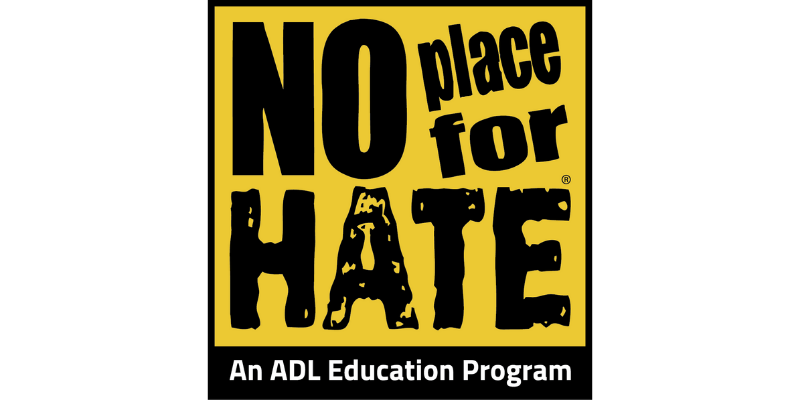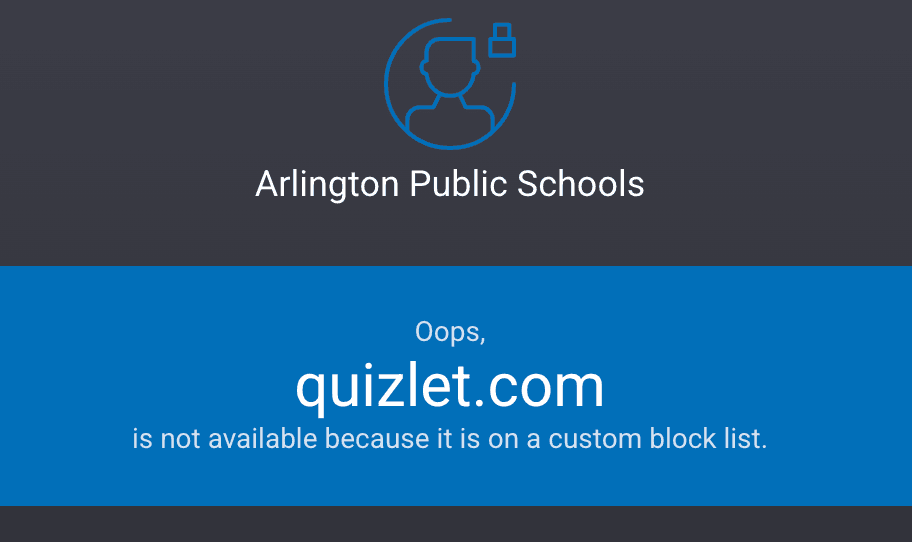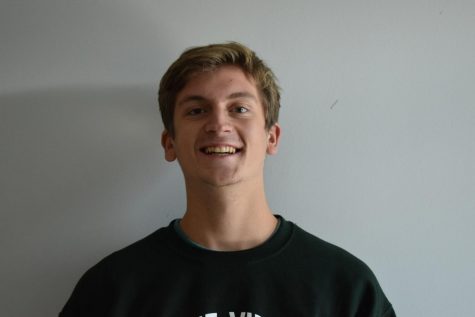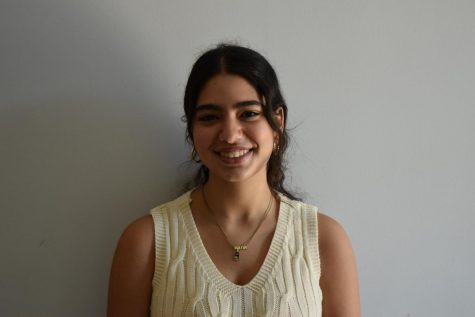Arlington Public Schools (APS) is set to implement the Anti-Defamation League’s (ADL) No Place For Hate (NPFH) framework to address inequities within the school system. NPFH is considered a practical new tool in the equity space by APS administrators; however, internal miscommunications, controversy surrounding the ADL and data collection concerns threaten the efficacy of the framework.
“No Place For Hate is really a framework that was created and designed by the Anti-Defamation League Education Department. [No Place For Hate] is student-centered, student-focused and student-driven to address incidents of bias and bullying at all levels. It’s a Pre-K to 12 schools, student, staff and community platform. It’s going to be used to help promote a culture that fosters respect, equity and inclusion for all,” Chief Diversity, Equity and Inclusion Officer Arron Gregory said.
NPFH is meant to unify schools and form committees of students, staff, parents and family members to address school-based issues relating to bias, inequity and bullying. The guidelines are meant to further the previous equity work enacted by the county as well as contribute to the social and emotional education of students. The framework has been deemed superior by the school system to other similar frameworks due to the community of NPFH schools already present.
“There’s a lot of individual schools that are in the tri-state area of [D.C., Maryland, and Virginia] that are participating [in No Place For Hate] that have been a major support with that framework. They’ve been there for us to help to support [APS] and to help talk us through what it might look like,” Gregory said.
The framework will be implemented in elementary and high schools starting in January 2021. Middle schools will begin during the 2021-2022 school year.
“There are three different tenets for being a No Place For Hate school. One is you form a committee. Our committee is going to be our equity teams…. The second part of that is that every school is expected to sign a pledge. That’s to build community in terms of what it is that we stand for, what is it that we want our students to know and be able to use to reflect an inclusive environment. The third component of that is an activity. So, every school this year, as a part of No Place For Hate, has been modified to complete one building-wide activity to earn designation,” Gregory said.
Despite the rapidly approaching rollout of the framework, school administrators and staff have a limited understanding of how NPFH will work. At Yorktown, the Coordinator of Equity and Excellence, Shari Benites, will lead implementation, but she believed it was a program of specific activities from the ADL. Monica Lozano Caldera, Equity and Excellence Coordinator of the Arlington Career Center, described NPFH as a strategy, not a framework, and believed it was optional. These misunderstandings are indicative of a larger theme of internal disconnect between administration offices and schools.
The liaison between the Coordinators of Equity and Excellence office and Gregory’s office declined to comment.
Nevertheless, Benites and Principal Kevin Clark have an outline for incorporating NPFH into the Yorktown community.
“During Patriot Period, maybe once a month or so, there’d be an activity or presentation. It would be around one of the activities from No Place for Hate. I think that’s important because, often, we’re not having intentional conversations about issues of equity. We’re not engaging in discussion of Black Lives Matter or what happened to George Floyd or murders and victims of police brutality or systemic racism that affects kids,” Benites said.
However, there is a fundamental flaw with this plan.
“My biggest concern is that, if we do this during Patriot Period, [some] teachers are not equipped for these conversations. They can do more harm than good. Most of the teachers at Yorktown have good intentions, but I don’t think [some teachers] understand some of these issues to the point where they can actually have a conversation. Are they equipped to handle it if somebody says something offensive? If somebody says something hurtful or ignorant?” Benites said.
Benites and Caldera are also wary of APS’s interaction with the ADL. The ADL’s mission is to “to stop the defamation of the Jewish people, and to secure justice and fair treatment to all,” but some view the organization as bigoted.
“I am having this dilemma about some of the statements the [ADL] has made. I want [APS] to be critical of the stuff we use and mindful of how we use it,” Caldera said.
“I know there is controversy with the ADL, and I know there have been issues with them. They’re clearly a Semitic organization, but they’ve also had issues with being somewhat anti-black, anti-LGBTQ, calling out people in public, anti-Muslim … I have mixed feelings,” Benites said.
Aside from staff, students have also been critical of this decision.
“[The ADL] is historically anti-Black, anti-Arab and anti-LGBTQ+, among other things. It is true that organizations can change and apologize for their past actions, but, at the end of the day, this organization was started and built off of these hateful principles…. Regardless of what the policy even is, if we are willing to take a guiding equity framework from an organization that has not always advocated for the equitable opportunity for students of color, for queer students, what are we doing? … As a student leader within the community, I am disappointed,” Rosie Couture, a junior at Washington-Liberty High School, said.
Gregory, however, does not share these concerns.
“I’ve seen nothing but excitement from our staff who do know about it,” Gregory said.
“That’s the political side of the ADL. We’re not aligning ourselves with the Anti-Defamation League; we’re not aligning ourselves with anything other than educational resources. I’ve yet to have anyone challenge or question those educational resources that talk about Islamophobia, that talk about Black Lives Matter, that talk about sexism, classism,” Gregory said.
According to Procurement Director David Webb, there is no official contract or memorandum of understanding in place between APS and the ADL. However, APS must share specific data with the ADL in order to adopt NPFH.
“We ask for racial demographic information on the students and staff of the school and information regarding how many students receive free and reduced lunch and how many students are English Language Learners. The only other data we receive from schools is data related to their No Place for Hate activities and, on occasion, school climate data,” Assistant Education Director of the Washington, D.C., ADL Office Michelle Magner said.
“Most of that information can be collected from our civil rights data; it has all of our graphic data. It can also be collected from the VDOE [Virginia Department of Education] website, which includes scores, demographics, those types of data,” Gregory said.
However, school climate data, which is typically generated by personal surveys from students, is generally considered more sensitive and is not public information. It is unclear if APS shares this information with any other organizations. Moreover, it is unclear what the ADL does with the data.
Despite the discontent, community members have proposed possible solutions.
“When working to create policies such as this one, community feedback is vital and should be taken into account…. There are many equity and anti-discrimination groups in Arlington that represent local communities. We should be turning to them for input because they would know our county best,” Belan Yeshigeta, a junior at Washington-Liberty High School and an advocate for equity in Arlington, said.
“I think that it would probably be useful for Mr. Gregory to make a statement. If we’re going forward with No Place for Hate, we should address some of the controversies around the ADL, but why we’re moving forward with it. I think that would be useful to maybe explain the thinking on it,” Benites said.
Although there are a multitude of concerns with NPFH, there is a clear silver lining. It is a countywide initiative. The framework will help accomplish a top goal for new Superintendent Dr. Francisco Durán: transitioning APS from “a system of schools to a school system.” Benites is enthusiastic about this shift in thinking.
“I want to do something. I’ve been working for 18 years as the equity coordinator for Yorktown, and I’ve been very frustrated that nothing gets done programmatically or systemically. It’s always a little shot here, a little thing here, but nothing sustainable and programmatic. At first, I was excited that we might be doing something as the whole county, that there’s administration behind it and powers behind it moving forward, but I also understand the objections to it,” Benites said.
“We need these system-wide strategies, but we all need to be in agreement. We need outcomes,” Caldera said.









































